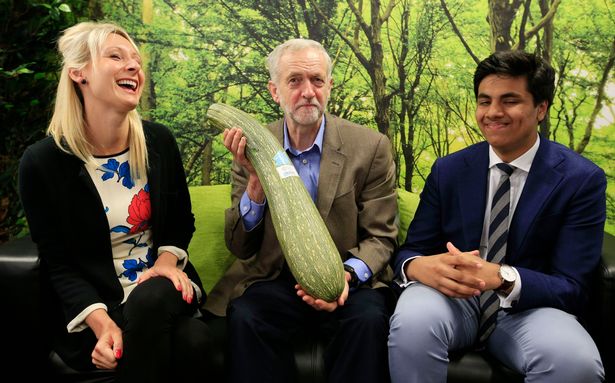Political parties rarely have good summers. If you’re in government, something normally goes wrong just as you’re settling into a deckchair. If you’re in Opposition, a good summer is when something has gone wrong in the government. A disappointing summer is when no-one notices your carefully-planned announcements. A bad summer is when you get plenty of attention, but for all the wrong reasons.
Labour has had a bad summer. It has spent much of it making rather wan attempts to calm the row on anti-semitism. A handy diversion turned up this week in the form of Dawn Butler taking exception to Jamie Oliver’s jerk rice, which has led to a row about cultural appropriation – as well as the Labour frontbencher clarifying, somewhat hilariously, that ‘I didn’t attack his chicken’.
As it happens, Butler didn’t attack his chicken, and her complaint about cultural appropriation does have more in it than some of her critics who are talking about Chicken Tikka Masala and carbonara with cream will allow. It’s not so much about the blending of different cultures that takes place whenever new recipes are created: yes, Jamaican cuisine leans on cooking from many other countries. It’s rather more about power. One of the objections behind ‘cultural appropriation’ is that people from an ‘oppressor’ nation like Britain make money by pinching the culture of a poor former colonial subject like Jamaica.
This can seem bewildering to those living in Britain who thought that praising the Notting Hill Carnival or the curry houses of Brick Lane was one of the ways of showing how happy you are about the way immigration brings new and exciting culture to a country. When I lived in right-on Bristol for a year, buying a yam was the sort of thing wealthy Clifton residents to show how very open-minded they were. But then again it’s not impossible to imagine that those whose heritage involves the sort of treatment historically meted out to Jamaicans might be a bit more sensitive to this sort of thing, even if getting in a stew about food is ultimately pointless.
The problem with complaining about cultural appropriation in the form of recipes isn’t just that it is impossible to stop people liking a dish and making something new inspired by it. It’s also that it leads to a form of identity politics, where you can only stay in your cultural lane. It makes it harder to celebrate the way immigration has undoubtedly improved Britain’s culinary scene if people feel they shouldn’t have a go at cooking a dish that borrows from another country. ‘No callaloo soup, please, we’re British!’
The reason jerk rice is getting so much attention isn’t just that people love the sort of debate where they can make amusing assertions about Jamie Oliver. It’s also that there’s not much else going round at the moment for Labour.
In the run-up to the 2015 election, I conducted a little experiment with Shadow Cabinet members to find out what the Labour slogan was. They could all quote the Tories’ ‘long-term economic plan’, but no-one in Ed Miliband’s top team knew what they were supposed to be repeating until the cows came home and the voters got bored. But those look like halcyon days now that the Labour Party doesn’t have a clear position on any of the important issues, save that Jeremy Corbyn is a good man and anyone who says otherwise is a smearing Tory.
Corbyn was the victim of a food-related attack this week, too, after he tweeted a picture of an omelette he had made at his allotment. Anyone who has had an allotment knows that this is a cry for help of a dish, the sort of thing you turn to after making courgette cake, courgette fritters, courgette soup and even deciding to hell with it and letting your courgettes turn into marrows. But it attracted more attention than it deserved, too, because Corbyn was managing to tweet about courgettes while refusing to say anything of merit on Brexit.
Now, this isn’t a sophisticated sort of whataboutery, saying politicians can’t cook courgettes (though they might want to consider planting fewer next year, something all allotment-holders fail to remember) or complain about a sachet of microwaveable rice because there are more important issues in the world. It’s more that if you’re not making sufficient noise about those important issues – like Brexit – at all, you can’t complain if your random musings on cooking attract a disproportionate amount of attention.
And indeed, the Labour Party has a serious noise problem when it comes to Brexit. Barry Gardiner has this week diminished his unlikely cult hero status by coming out against the idea of a ‘People’s Vote’ on the final Brexit deal, thereby attracting the praise of Jacob Rees-Mogg and Kate Hoey. But it isn’t clear whether Gardiner was actually speaking for the Labour Party. He has been slapped down by the leadership on Europe before.
The clearest you can get to working out a definition of Labour’s position on Brexit is ‘we must keep the Party together’, which is the phrase the whips have been deploying when trying to cajole backbenchers into supporting various meaningless amendments which don’t so much sit on the fence as hide behind it. It is far easier for Labour to keep hiding on this matter, because anything else would involve confronting the gaping chasms between the membership and leadership on the European Union, between voters in Remain-supporting London seats and pro-Leave northern constituencies, and between the different factions of MPs in Parliament. But ‘we must keep the Party together’ doesn’t really fit as a slogan for attracting voters. Mind you, neither does anything to do with courgette omelettes or jerk rice – which, combined, would be a miserable dish symbolic of the sort of sad predicament the Labour Party is in.







Comments